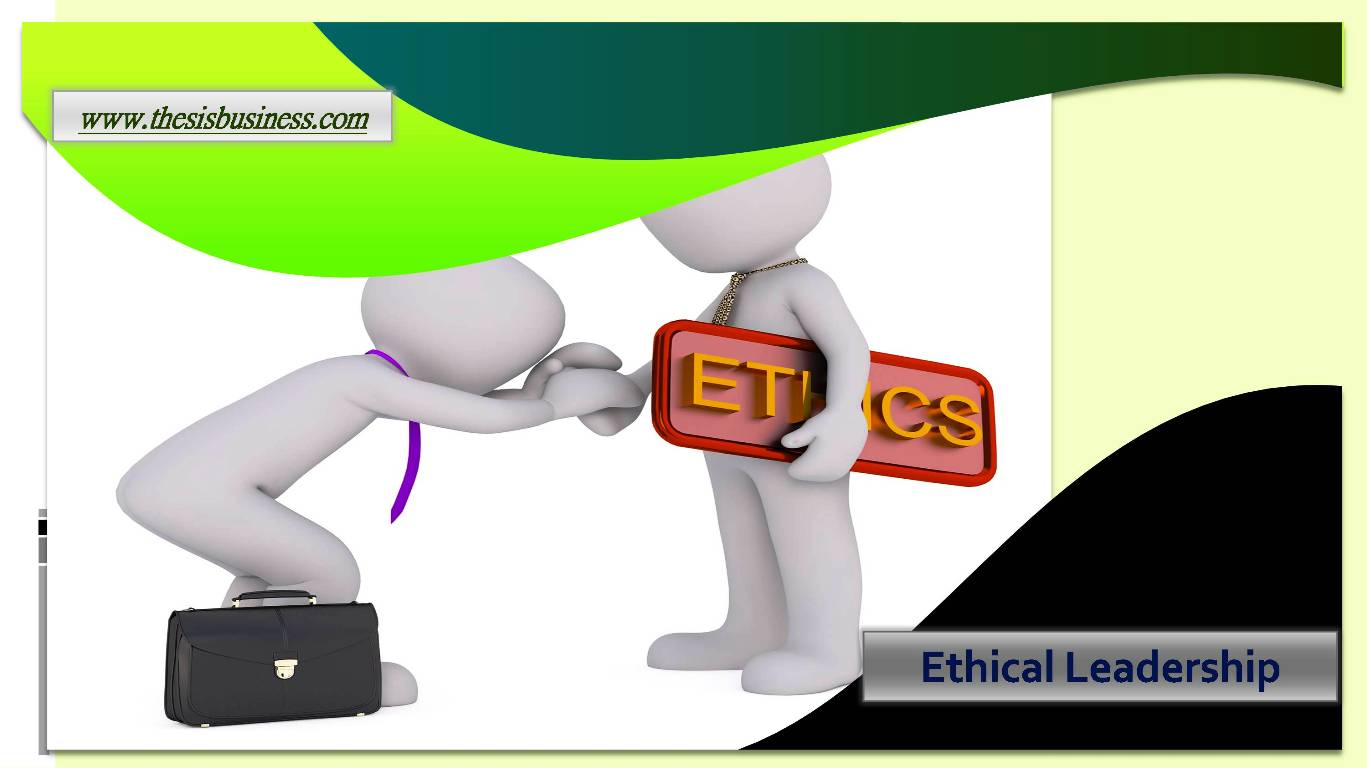Ethics is a special branch of human philosophy that deals with human behavior. A man’s morality is particularly reflected in his behavior toward others in society. Among the various characteristic features of human philosophy, a man has the power to inspire many people through his ethics.
Some people can inspire others through their ethics, thoughts, and ideals, which makes some people or groups place them in the seat of Ethical leadership. Equally, ethics is essential among all the other characteristics of a leader in any workplace that enhances the company’s growth.
Table of Contents
Ethical Leadership – Definition
Ethics is a significant characteristic of any leadership personality, and they exhibit appropriate and ethical behavioral approaches in their organization. Ethical leaders are very constructive in nature. Therefore, their actions are always reliable because it includes strong values without justice for their subordinates.
Ethical behavior and the ideals of leadership play a significant role in building a positive ethical culture in a company. Just as a hardworking team leader is needed to quickly transform a small company into a big one, his ideals, integrity, and ethics will always prevail in the success of that company.
History Of Ethical Leadership –
“Service to followers is the primary role of leaders and the essence of ethical leadership,” remarked Greenleaf in the 1977 well-acclaimed book “Servant Leadership.” Three distinct leadership philosophies are frequently used to describe ethical leadership.
James Burke is one of the first names that come to mind when someone mentions an ethical leader. The moral leadership demonstrated by Burke sheds light on the issues confronting business and the significance of constructing a relationship of trust with the organization’s customers. One definition of ethical leadership is a leader’s exercise of social influence to inspire ethical behavior in followers.
This is a more general definition of ethical leadership. The terms “ethical behavior” and “unethical behavior” here refer to behaviors typically accepted and rejected by the group, organization, and society.
The Ethical Leadership Scale (ELS), created by Brown et al. in 2005, is a frequently used indicator of ethical leadership. With a total of 10 items and an internal consistency of alpha =.92, it exhibits a satisfactory fit and has indices that are at or above suggested norms.
According to research, ethical behavior must be taught through practice and instruction. An ethical leader acquires moral principles via experience and expertise in organizational issues, then joyfully implements those principles in his everyday choices and deeds.
Advantages of Ethical Leadership:-

- It can be stated that having ethical leaders not only sustains a company’s financial growth and reputation but also upholds the legal regulations of a particular organization. Also, being registered in legal guidelines enables that company to make day-to-day decisions. Sometimes cases of sexual harassment are mentioned in the workplace.
- The proper justice of those cases can be given through such a legal system, and the role of moral leaders, in that case, is undeniable.
- Concerning that fact, it can also be said that having an ethical leader in an organization can easily lead the organization in the long run.
- Ethical leaders always ensure core values among their employees. Therefore, it ensures loyalty and respect toward the company.
- Ethical leaders always maintain constructive fundamentals in their operations, so rules and guidelines incorporated that should be equal among all.
- Further, an ethical leader can easily prevent any unwanted scandals, ethical dilemmas, and ethical problems in the company. This, in turn, paves the way for the overall improvement of a company or organization. It can help organizations get more partnerships and customers, leading to more money at the end of the day.
Disadvantages of Ethical Leadership:-
- An organization or institution is not built on one person. In a reputable organization, there is a need for good understanding and unity of purpose among every employee, especially in the executive team. However, such friendly relations are not always maintained.
- Sometimes, it is seen that if a leader decides to act in an unethical way, it creates a cold war in the organization in the beginning but later on, it helps immensely in bringing down the organization.
- Since an organization consists of numerous employees with different characteristics who do not have the same objectives. Hence such a leadership style should emphasize defining the rules and the company’s objectives.
- In order to take a company to the top of development, every employee must match their ethical definitions and also make them aware of their responsibilities towards the company.
How to implement ethical leadership?
It takes planning and practice to lead an organization with morals, empathy, and character. When faced with challenging circumstances in which there isn’t always an evident “correct” path forward, ethical leadership is continually honoring those beliefs and choosing to do what’s right rather than what’s convenient.
Leaders that uphold moral principles show through Example. They impact others by setting an example of how to make morally challenging decisions and motivating others to use their moral imagination to empathize with the present while working toward a better future.
The suppliers you choose to work with, how you treat your staff, reduce your environmental impact, and other factors can all be reflected in this new gauge of success.
Identifying who you are and why your values are essential to you is one of the first steps toward ethical leadership. The real world is rife with decisions, however inconsequential, that will put your moral compass to the test in the strangest ways. Understanding the guiding ideals and, more crucially, acting in accordance with them is necessary for ethical leadership. In contrast to their beliefs, ethical leaders hold their principles dearly. Before making challenging judgments, it calls for listening to other points of view and considering conflicting priorities and viewpoints.
Empathy can motivate leaders to engage in uncomfortable dialogues that cut across differences, come to concessions that may not have been obvious initially, or come up with original ideas.
Ethical Leadership – Real-life Example
Ethical leaders develop genuine relationships with others. A leader must inspire and help others. Ethical leaders inspire others to be compassionate, empathetic, vulnerable, and honest by modeling these traits. Ravneet Vohra felt like she had no voice as a child sexual abuse survivor in a primarily white town. She was working in fashion when she saw a lack of inclusiveness, especially in size and color. Wear Your Voice was her solution to the diversity gap (WYV).
Vohra’s intersectional feminist journal challenges cultural conventions and unconscious biases and features marginalized voices. Vohra has always prioritized paying her authors, whose job frequently includes reliving emotional pain, and due to investor Mark Cuban, she can now pay above-average rates.
Conclusion –
In order to conclude, it can be stated that ethical leaders are very constructive in nature; however, such nature of a leader ensures core values. Therefore, it inserts mutual respect among stakeholders.
Though in recent times, people do not allow this leadership in their organizations. However, it is not possible to implement and develop core values for its stakeholders. Apart from that, ethical leaders are very strict about the implication of laws and guidelines. Such legal enforcement develops trust and confidence in brand building.
Recommended Articles –
Spiritual Leadership
Transactional Leadership
References –
Brown, M.E. and Treviño, L.K., 2006. Ethical leadership: A review and future directions. The leadership quarterly, 17(6), pp.595-616.
Ahmad, I., Gao, Y. and Hali, S.M., 2017. A review of ethical leadership and other ethics-related leadership theories. European Scientific Journal, 13(29), pp.10-23.
Lawton, A. and Páez, I., 2015. Developing a framework for ethical leadership. Journal of Business Ethics, 130(3), pp.639-649.
